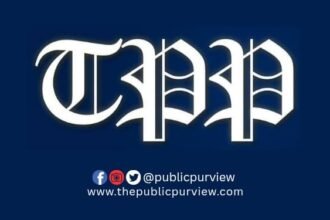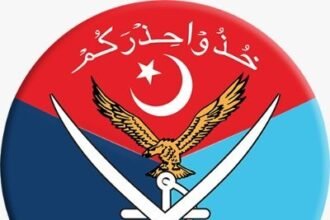ISLAMABAD: The International Conference on ‘Celebrating Pakistan’s Ancient Archeological and Civilizational Heritage’, organized by ISSI, concluded with Foreign Secretary Amna Baloch reaffirming commitment to preserving and promoting Pakistan’s rich archeological and civilizational heritage.
The one-day conference drew a significant gathering of diplomats, cultural experts, and academics, underscoring the keen interest in exploring, preserving, and promoting Pakistan’s rich archaeological and civilizational heritage.
The inaugural session, addressed by Senator Mushahid Hussain Sayed and Federal Secretary for National Heritage and Culture, Hassan Nasir Jamy, was followed by three working sessions.
Addressing the concluding session, Foreign Secretary Amna Baloch expressed her deep pride in the country’s rich and multi-layered legacy. She highlighted how the ancient civilizations of the Indus Valley and Gandhara, which flourished in the present-day Pakistan, continue to inspire modern society.
The Foreign Secretary emphasized the importance of preserving heritage, noting that the values of innovation, resilience, and coexistence seen in the ancient cultures remained relevant today.
She called for a balanced approach to conservation, tourism, and development, ensuring that Pakistan’s cultural assets were safeguarded for future generations.
She lauded the Institute of Strategic Studies Islamabad’s (ISSI) initiative of focusing on this subject.
The Foreign Office, she re-assured, would remain a committed stakeholder and partner in these efforts, working closely with local communities and international experts to protect and promote Pakistan’s shared legacy.
Earlier, the first working session titled ‘Journeying through Pakistan’s Ancient Treasures’ was moderated by Zafarullah Siddiqui, former Joint Secretary Development.
Dr. Muhammad Hameed, Chairman of Archaeology Department at Punjab University, called for new expeditions and monument restoration, stressing the need for collaboration between heritage and tourism sectors. He also emphasized the importance of heritage as national pride.
Prof Ruth Young, Professor of Archaeology at the University of Leicester, UK, underscored the importance of religious sites, especially Buddhist sites, in shaping Pakistan’s identity. She acknowledged the government’s efforts to use heritage to enhance Pakistan’s global image.
Anjum Javaid, Deputy Director, Directorate General of Archeology, emphasized Harappa’s advanced urban planning and urged for pride in the Indus civilization, which, he noted, surpassed Egyptian and Mesopotamian heritage.
Professor Hridaya Bajracharya, former Vice Chancellor, Lumbini Buddhist University, Nepal, highlighted the shared heritage between Nepal and Pakistan’s Gandhara civilization, stressing the importance of celebrating Gandhara’s cultural influence and its potential to foster shared narratives.
The second working session was titled ‘Reflecting on Pakistan’s Rich Heritage’ and was moderated by Dr Abdul Samad, Directorate Archeology Khyber Pakhtunkhwa.
Ms Heba Hashmi, Maritime Archaeologist and CEO of Heritage Archaeology Cultural Heritage Associates, outlined preservation strategies, including digital heritage trails, and climate change adaptation.
She emphasized the need for flood risk management in archaeological efforts.
Professor Luca Maria Oliveri, Director of the Italian Archaeological Mission to Pakistan, highlighted the mission’s start in 1955 in Swat Valley, exploring late ancient Swat and Himalayan Buddhism.
He emphasized that conservation sites could become training hubs for developing new professionals.
Ms Kiran Afzal, Senior Private Sector Specialist at the World Bank, highlighted the Bank’s efforts in preserving historical sites in Punjab and KP, focusing on jobs creation and tourism promotion.
She emphasized the need for more resources due to rising maintenance costs and noted the success of solarizing sites and collaboration between KP and Punjab.
Ms Parveen Talpur, historian and archeologist based in the United States, highlighted the region’s historical significance, the overlap of Buddhism and the Indus Civilization at Mohenjo-Daro, and called for digital preservation.
She emphasized on protecting cultural artifacts from smuggling and theft.
The third working session titled ‘Building Bridges Through Cultural Tourism’ was moderated by Amir Jahangir, Founder and Chief Executive Officer, Mishaal, Pakistan which is the partner institute of the World Economic Forum.
Ambassador of Pakistan to France and Permanent Delegate to UNESCO, Asim Iftikhar Ahmed emphasized that Pakistan’s historic civilizations, such as Mohenjo-Daro and Taxila, formed a shared global legacy.
He highlighted the need for preservation, cultural tourism, and policy measures to promote heritage sites at both national and local levels.
Professor Iftikhar H. Malik, Professor Emeritus at Bath Spa University, said that Pakistan’s history extended far beyond 1947, with a rich ancient past.
He urged the preservation of historical sites and the inclusion of the Indus Valley Civilization in updated textbooks to better educate future generations.
Dr Christina Menegazzi, Culture and Heritage Expert UNESCO Pakistan, highlighted Pakistan’s rich cultural heritage and its potential for tourism, noting the importance of stability for growth.
She underlined UNESCO’s efforts in advancing sustainable tourism through education and cultural preservation.
Imran Shaukat, a heritage tourism expert, highlighted the potential of religious tourism, particularly Buddhist sites, to generate income with minimal investment.
He called for streamlined visa processes and aggressive marketing to improve Pakistan’s global image.
The Key Takeaways of the Conference were presented by Dr Talat Shabbir, Director China Study Centre (CPSC). He highlighted the need for comprehensive preservation strategies, including field expeditions, digital preservation, and addressing climate-related risks. Dr. Shabbir also stressed the importance of cultural and religious tourism in fostering global connections, promoting Pakistan’s heritage, and creating economic opportunities.
He concluded by underscoring the need to cherish these ancient treasures as symbols of shared history and potential.
In his closing remarks, Ambassador Khalid Mahmood, ISSI’s Chairman Board of Governors, underscored the vital role of cultural and civilizational heritage in shaping Pakistan’s national identity and image.
He noted that Pakistan is blessed with immense cultural and civilizational treasures and stressed the importance of community involvement in preserving these assets. He highlighted the economic potential of cultural and religious tourism, which could create opportunities for local communities and contribute to Pakistan’s economic development.










